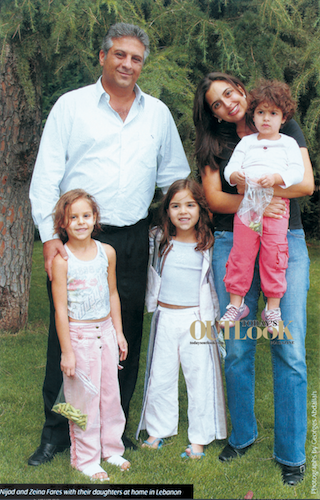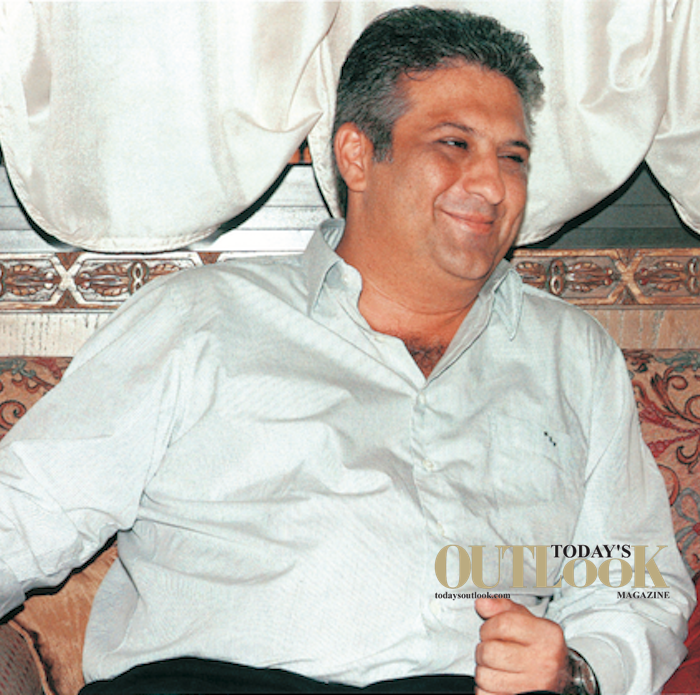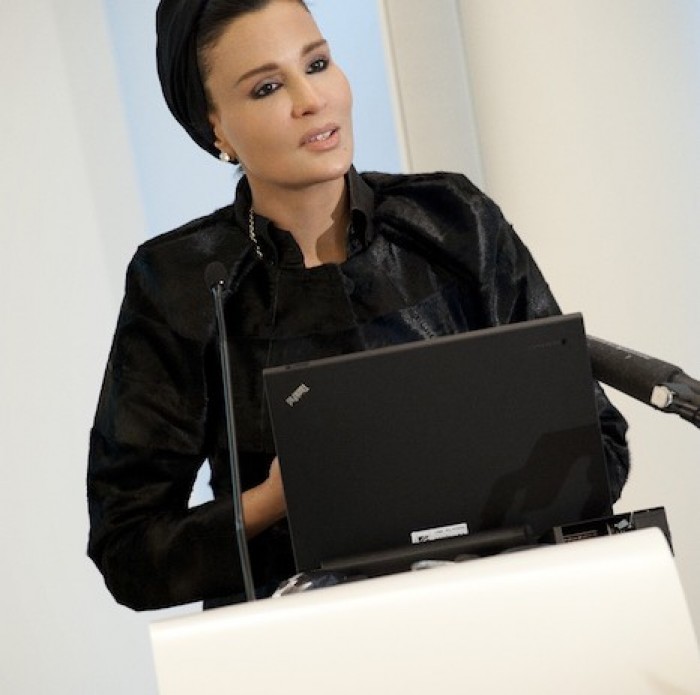Success Stories
Nijad Fares
A famous father’s son working hard for Lebanon
July 20, 2004
Nijad Fares is the son of Issam Fares, the current Deputy Prime Minister. At least, that’s what most Lebanese know him for. But Nijad left the family nest a long time ago. In an exclusive interview with Today’s Outlook, Nijad Fares revealed that he has established himself as a successful businessman, that he is extremely dedicated to his family, and that his goal of empowering the Lebanese community in the United States and bridging the gap between the East and the West is a difficult, but important, task.
You’ve been spending a lot of time in Lebanon the last few years. What are your views on the country’s current political and economic situation?
I’m quite positive Lebanon is on its way up. Tourism this summer is fantastic; there’s an influx of tourists and that’s very encouraging. Unfortunately, the same cannot be said for the political situation, which is very difficult and complex due to Lebanon’s location in the region. These are difficult times, but I believe that Lebanon is coping in the best way that it can.
What do you cherish most about Lebanon – the people, the culture, the heritage, the family, the food, the language…?
I cherish all of the above and more, especially the culture, the people and family values. I’ve lived outside Lebanon since 1975 – since I was ten years old – and I have never forgotten the beauty of Lebanon. The closeness of family and friends is the most special thing for me. I’m also very proud of my heritage. Lebanon has always been a trendsetter, not just in the Middle East, but in the world. It has benefited the world with so many good things, evidenced by the successful Diaspora around the world.
Your father is a very respected politician in the Middle East. How does it feel to be the son of such a political leader and businessman?
I am very proud and very privileged to be his son. And although I set my own standards and my own goals in life and hope to achieve them as I go along, I believe very much in my father’s values and I work towards them. I don’t consider it a sacrifice to work for my country, or to work hard, or to live my life according to the values that he has instilled in us – on the contrary, it’s a pleasure and a privilege.
Do you communicate with your father on a daily basis?
Our relationship is excellent. He is a very caring and loving father, and he’s always interested in family news. We can communicate easily on anything, whether it’s a personal issue, a business matter, or something in the news.
Your family owns different businesses around the world. Which aspects of (family) business are you involved in?
I have two different lines in business. I work with my family and manage an investment branch. I also have my own company, which I bought 15 years ago. It’s going quite well. In addition, I have three other businesses I’m involved in with people that I trust. I try to find people that are trustworthy and ambitious, and I invest with them.
You have worked on strengthening the ties between Lebanon and the United States through a multitude of activities, visits and meetings. Can you elaborate on the purpose and the outcome of these initiatives?
I strongly believe that the United States is one of the best friends of Lebanon, and I believe that the U.S. needs Lebanon, funnily enough. Lebanon is not a big country, nor is it important, but it is the trendsetter in the region. So it is in the interest of the United States to be good friends with Lebanon.
I’m very interested in strengthening the relations between the two countries. To do so, we need to have U.S. politicians, or their advisors, see Lebanon for what it is and what it can be. We need to expose them to Lebanon and its leadership. We also need to empower our community in the United States. I believe that Lebanese Americans are very capable and very successful. It’s been difficult since September 11 and so it is even more important that the two countries come together and work together.
The American Arab Chamber of Commerce recently brought together political and business leaders from the Arab world and the United States; a move that was very successful and opened many doors. I think that such gatherings are very important to bridge gaps, because, as we all know, business is the best diplomacy in the world. Opening up businesses can only help to improve relations between the United States and the Arab world.
What do you consider your greatest accomplishment to be?
My most important accomplishment has been to nurture my own family. Where my professional career is concerned, I believe that my greatest accomplishment is yet to come. A personal success for me has been to work closely with the Lebanese expatriate community in the United States, and to help them become more aware of their rights as well as their duties and responsibilities to both the U.S. and Lebanon. It’s still a long process, but I consider this to be an important task.

What has been the greatest challenge of your life?
I believe that I am very lucky to be able to do what I do, and I consider any task I’m faced with a privilege rather than a challenge.
How do you manage to fit family and work responsibilities into your busy schedule?
What works for me is to set aside allocated family time, during which I dedicate 100% of myself to my kids and Zeina. Sometimes, however, traveling for work means compromising my time with them.
What do you consider to be a solid foundation for a healthy marriage and family?
I don’t know all the answers, but I’m very blessed to have a family that is very loving and understanding. To me, the best foundations are, simply, truth and love – the basis of any successful relationship, not only family.
Where did you meet your wife Zeina?
I met Zeina in Mexico. At the time, her father was the Lebanese Ambassador to Mexico and I was there for business. I knew her father because we are both from the same village, so I paid him a visit. And that’s where I met her.
Nijad, how would you describe yourself as a person?
Honest, ambitious, passionate – qualities I like to think I possess.
Are you happy with your life?
I’m very satisfied with my life; I’m very happy with the way things are. I live my life today as if there were no tomorrow, and I live tomorrow as if life would last forever.
Can you describe a typical day in your life?
The wonderful thing about my life is that I don’t have a typical day. Every day is unique – a different country, different place, different time zone. But in general, I usually have six or seven hours of research and paperwork a day, after which I move on to meetings or to my civic work. In the evening, I spend time with my children before they go to bed and often Zeina and I have events or dinners to attend.
What are your hobbies?
I like sports – tennis and skiing in particular, and I like to read business publications and to remain current on world affairs.
Would you consider living in Lebanon permanently?
I would really like to relocate my family to Lebanon. However, every time I consider this option I realize that my work in the States is too important, whether it is our business or the work we do for Lebanon and for our community in Houston. There’s still much work to be done, so I don’t have a ten-year plan.
Do you have political interests?
I certainly do, but not in the way you may assume. I believe that every Lebanese has a duty to work for their country. I try to do that wherever I am. In that sense, I believe that I am a politician, but I have no ambition to pursue politics as a career.
Where do you spend most of the year?
I travel a great deal, but I spend most of the year in Houston, Texas, since our headquarters is located there.
Having traveled so much, what is your favorite place?
Beirut (laughs)! Honestly, I wish that every Lebanese would have the opportunity to live outside Lebanon for a year, because then they would appreciate all the good things Lebanon has to offer such as the climate and the environment, although the Lebanese try very hard to destroy it (laughs). Lebanon is so beautiful – the Mediterranean, the mountains and the villages make this small country very unique.
































